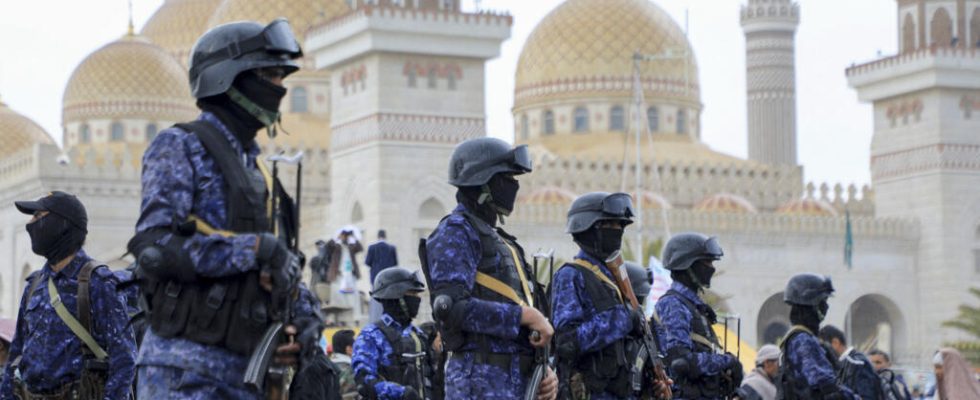The Houthis claimed new strikes against an American merchant ship in the Red Sea this Friday, January 19, 2024. And the Americans announced that they had carried out three new strikes in the morning. Each raid increases the tension on this strategic sea route. A look back at the mechanisms of this military escalation with David Rigoulet-Roze, associate researcher at the Institute of International and Strategic Relations (Iris) and editor-in-chief of the journal Strategic Orients.
4 mins
RFI : The United States has now struck Houthi positions in Yemen a number of times. What are the targets ?
David Rigoulet-Roze : These are essentially firing zones, including potential missile launches from different places in Yemen. The idea is to try to establish a form of deterrence, even if the Americans recognize that, for the moment, the results are mixed. There is probably a form of erosion of capabilities in military terms, but fundamentally, the problem remains since the Houthis have not given up firing.
It seems surprising that the Houthis continue to face the great American power. How to explain it?
There is a deterioration in military capabilities, but it is relative because it is not a question of massive strikes. American operations have been extremely targeted. The last one targeted around fifteen missiles, the previous one only four. We can clearly see that this is not an air campaign, that is what would effectively allow a significant deterioration of the Houthis’ launching capabilities. But the Americans do not want to get into a potential spiral.
On the part of the Houthis, there is skill in a logic of asymmetrical warfare from the weak to the strong. They are not in a logic of direct military confrontation. And besides, the United States doesn’t want that either. So, the Houthis are playing on this ambiguity which allows them to continue their strikes and maintain insecurity with some success. Today, much of the traffic is being diverted via the Cape of Good Hope. This extends the trip by around ten days and almost doubles freight costs. This has a potential impact on a revival of inflation at the global level.
So, a “small group” that we didn’t talk about so much at the international level, managed the feat of having a global impact. Indeed, the great powers are paradoxically helpless in the face of this type of situation which does not fit into a conventional framework.
Is there a risk of fire ?
According to the American argument, their military responses were intended to promote de-escalation. The problem is that there is a form of trap because the replicas in question are de facto a form of climbing. At the same time, there is an imperative to restore some form of security for international trade. There is a lengthening of the logistics chain, some companies in Europe, whether Ikea, Tesla or others, have already announced delays. The Chinese are now starting to show their concern. Until now, they had been careful not to join the coalition which was set up by the Americans on December 18.
Indeed, China today called for an end to “ harassment » civilian ships on this “ important international trade route “. We know that the Iranians support the Houthis. Would Beijing be able to put pressure on Iran to put an end to this situation? ?
We can think that there will surely be a Chinese request to Iran, since the Houthis are considered to be a proxy for Tehran on the edge of the Red Sea. But it is not certain that this will have any effect. Because the Houthis are not fully aligned with Iran. They do not take direct orders from Iran. They are indeed adjusting to Iranian geopolitical interests in this case, since they are part of the axis of the so-called “resistance” to Israel, but they also have their own agenda in Yemen. In the Russian newspaper Izvestia, they declared their readiness to protect Russian and Chinese boats. But the problem remains, Beijing obviously does not want to jeopardize logistical flows to Europe where China’s main customers are.
Read alsoRed Sea: new Houthi strikes on an American ship, a week of escalation in the Gulf of Aden
